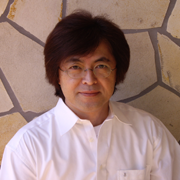Novel anti-inflammatory Artemisia Naphta oil Extract Efficacious in in vivo Mouse Models of Atopic Dermatitis and Psoriasis
Author(s): Hu Huang, Kan Tao, Ziyan Qin, Lili Guo, Corey Fitzgerald, José R. Fernández, Eduardo Pérez
Background: Artemisia annua has been used in traditional Chinese medicine and has recently emerged in contemporary medicine as an anti-malaria treatment due to the presence of artemisinin, and topically for cosmetics. Since Chinese regulations prohibit the use of artemisinin in consumer products, we previously developed a novel, topical, artemisinin-free A. annua extract byproduct called artemisia naphta (AN) oil. We demonstrated that AN oil extract was effective in vitro and clinically in subjects with sensitive and/or acne prone skin. Given these findings, we sought to determine the therapeutic potential of AN oil extract for atopic dermatitis (AD) and psoriasis.
Results: Utilizing human peripheral blood mononuclear cells, we screened for AN oil extract’s ability to inhibit T-cell mediated inflammation, a hallmark of AD and psoriasis. Results showed that AN oil extract significantly reduced T-cell Receptor induced IL-4 and IL-17A pro- inflammatory cytokine release. Given these promising in vitro results, we then tested AN oil extract’s activity in topical in vivo models for both AD and psoriasis. In the calcipotriol or MC903-AD-induced model, AN oil extract demonstrated reduction in mouse ear thickness (edema) and several serum cytokines IL-1β, IL-6, and IgE. Furthermore, AN oil extract was also effectively ameliorated lesions, significantly reduced psoriasis area and severity index score down to 5.4 and inhibited serum inflammatory mediators (IL-6, TNF-α, IL-1β) in the imiquimod-induced psoriasis mouse model.
Conclusions: The results presented here make AN oil extract an attractive candidate for further development to treat AD and psoriasis as well as continued usage as a cosmetic ingredient.


 Impact Factor: * 3.5
Impact Factor: * 3.5 Acceptance Rate: 71.36%
Acceptance Rate: 71.36%  Time to first decision: 10.4 days
Time to first decision: 10.4 days  Time from article received to acceptance: 2-3 weeks
Time from article received to acceptance: 2-3 weeks 
